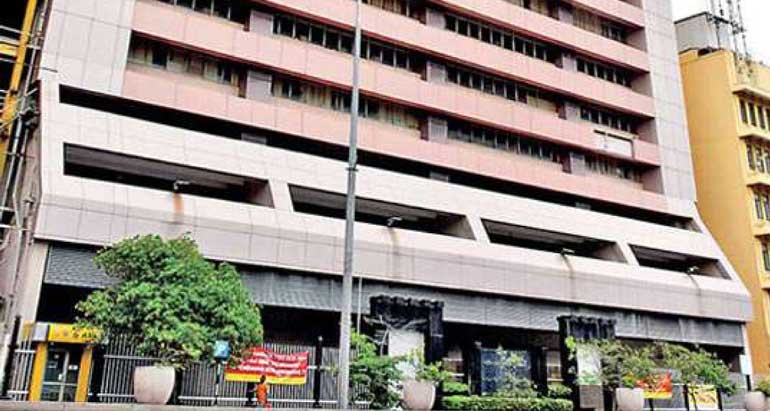Wednesday Feb 18, 2026
Wednesday Feb 18, 2026
Thursday, 2 October 2025 00:00 - - {{hitsCtrl.values.hits}}

Three private sector chambers filed a writ application before the Court of Appeal on Tuesday challenging the Inland Revenue Department’s (IRD) decision to commence collecting Value Added Tax (VAT) from 1 October without first operationalising the legally mandated automated refund mechanism.
The chambers are the Free Trade Zone Manufacturers’ Association (FTZMA), the National Chamber of Commerce of Sri Lanka (NCCSL) and the Sri Lanka Chamber of Small and Medium Industries (SLCSMI).
The Petitioners, representing exporters, deemed exporters, sub-contractors to exporters, service providers in the export supply chain, SMEs, and the broader business community, state that collecting VAT from export-related businesses without a proper functioning refund system, and without publishing the conditions of the proposed Risk-Based Refund Scheme in the Gazette, is unlawful, unreasonable, and a violation of constitutional rights.
According to the Petitioners, the Government abolished the Simplified Value Added Tax (SVAT) scheme earlier this year, after it had been postponed by the previous administration at the request of the export community.
That abolition was accompanied by a statutory requirement that a new automated, risk-based VAT refund scheme be in place from 1 October 2025. To date, no such system has been implemented, nor have the selection criteria for the refund scheme’s Green, Amber, and Red channels been published.
The Chambers question the feasibility of IRD assurances that refunds will be paid within 45 days, noting that long-outstanding VAT refunds due to exporters dating back to 2010 remain unsettled.
They further express concern that, contrary to international good practice where refund-risk channels are selected automatically by transparent algorithms, the IRD now proposes appointing a committee to select channels, creating opportunities for discretion, delay, and potential abuse.
They cite similar risks observed when committees, rather than automated systems, are involved in operational decisions such as the release of containers by Customs.
The Chambers emphasised that the SVAT system, implemented nearly two decades ago by the IRD for registered exporters, deemed exporters, and export supply-chain service providers, functioned smoothly and transparently because it avoided cash transactions.
Instead, it relied on IRD-issued vouchers exchanged within the IRD’s online system between buyers and sellers. While the IRD has indicated to the IMF that there were “leakages” under SVAT, the Petitioners note that, despite being administered and monitored through the IRD’s own online system, no violators have been identified or named.
On industry estimates, any leakage would have been negligible (well under 0.01%), underscoring that SVAT was an effective and low-risk mechanism.
The Chambers also clarify that the IMF’s revenue objective for Sri Lanka is to raise government revenue to 15% of GDP; the method of achieving this is a policy choice for the Government. The IMF has not required the abolition of SVAT.
Multiple Chambers, including the International Chamber of Commerce, engaged with the IMF and urged against abolishing SVAT without a proven, automated refund system ready to replace it.
The Petitioners contend that the IRD’s advice to abolish SVAT has effectively reinstated a cash-refund regime that was historically vulnerable to delays and corruption.
The Chambers warn that immediate VAT collection in the absence of an automated refund system will create severe cash-flow stress across the export ecosystem, pushing many firms, particularly SMEs and indirect/deemed exporters, towards insolvency.
This, they argue, threatens employment, curtails domestic value addition, and undermines export competitiveness as the main exporters shift to importing raw materials and packaging materials rather than sourcing them locally.
The Petitioners caution that an export-supply-chain liquidity crunch could trigger a foreign exchange shortfall and jeopardise Sri Lanka’s capacity to meet international obligations by 2028.
Comparing the policy risk to the previous administration’s fertiliser restriction, implemented without adequate impact assessment, the Chambers argue that dismantling SVAT without a ready, automated refund alternative could inflict even greater economic damage.